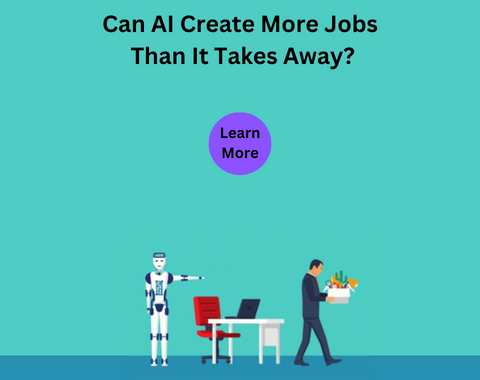However, historical precedent challenges this notion. Throughout history, technological advancements, including the industrial revolution, have led to the evolution of job markets rather than causing mass unemployment. While certain job sectors may decline, new opportunities emerge in tandem with technological progress.
The Evolution of Job Markets
The advent of AI has ushered in a new era of job creation, particularly in fields related to technology and data science. Demand for skilled professionals who can develop, implement, and maintain AI systems has surged. AI engineers, data scientists, and machine learning experts are now in high demand, reflecting the need for human expertise in creating and managing these advanced technologies.
Moreover, AI has given rise to entirely new industries and job categories. The development and deployment of AI systems require a diverse range of skills, from ethical AI design to cybersecurity. As businesses integrate AI into their operations, the demand for professionals with expertise in these areas has skyrocketed, contributing to the creation of a new job market.
Enhancing Human Productivity
Rather than replacing human workers, AI has the potential to enhance productivity and create more opportunities for collaboration. AI systems can handle repetitive and mundane tasks, freeing up human workers to focus on tasks that require creativity, critical thinking, and emotional intelligence—qualities that machines currently lack. This shift in job roles can lead to the development of a more skilled and adaptable workforce.
For example, in the healthcare sector, AI is being utilized to analyze vast amounts of medical data, aiding in diagnosis and treatment planning. While AI can automate certain diagnostic processes, healthcare professionals are still needed to interpret results, provide personalized care, and make complex medical decisions. In this way, AI complements human capabilities rather than replacing them.
The Gig Economy and Entrepreneurship
The rise of the gig economy and entrepreneurship is another facet of AI’s impact on employment. AI-powered platforms have enabled individuals to create and participate in flexible work arrangements. Freelancers, independent contractors, and gig workers can leverage AI platforms to find opportunities and connect with clients, creating a decentralized job market.
Additionally, AI has facilitated the emergence of new businesses and startups. Entrepreneurs are harnessing the power of AI to develop innovative products and services, leading to job creation in emerging industries. The accessibility of AI tools and technologies has lowered barriers to entry for small businesses, allowing them to compete in the global marketplace.
Addressing the Skills Gap
While AI creates new opportunities, it also highlights the importance of addressing the skills gap. As job roles evolve, workers need to acquire new skills to remain competitive in the workforce. Continuous learning and upskilling initiatives become essential to empower the workforce to adapt to the changing demands of the job market.
Governments, educational institutions, and businesses play a crucial role in fostering a culture of lifelong learning. Investing in education and training programs that focus on AI-related skills can help bridge the gap between available jobs and the skills of the workforce. By proactively addressing the skills challenge, societies can ensure that the benefits of AI are equitably distributed across the workforce.

